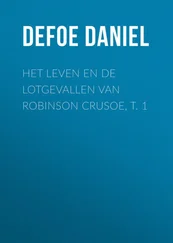Daniel Defoe - Atalantis Major
Здесь есть возможность читать онлайн «Daniel Defoe - Atalantis Major» — ознакомительный отрывок электронной книги совершенно бесплатно, а после прочтения отрывка купить полную версию. В некоторых случаях можно слушать аудио, скачать через торрент в формате fb2 и присутствует краткое содержание. Жанр: foreign_prose, на английском языке. Описание произведения, (предисловие) а так же отзывы посетителей доступны на портале библиотеки ЛибКат.
- Название:Atalantis Major
- Автор:
- Жанр:
- Год:неизвестен
- ISBN:нет данных
- Рейтинг книги:3 / 5. Голосов: 1
-
Избранное:Добавить в избранное
- Отзывы:
-
Ваша оценка:
- 60
- 1
- 2
- 3
- 4
- 5
Atalantis Major: краткое содержание, описание и аннотация
Предлагаем к чтению аннотацию, описание, краткое содержание или предисловие (зависит от того, что написал сам автор книги «Atalantis Major»). Если вы не нашли необходимую информацию о книге — напишите в комментариях, мы постараемся отыскать её.
Atalantis Major — читать онлайн ознакомительный отрывок
Ниже представлен текст книги, разбитый по страницам. Система сохранения места последней прочитанной страницы, позволяет с удобством читать онлайн бесплатно книгу «Atalantis Major», без необходимости каждый раз заново искать на чём Вы остановились. Поставьте закладку, и сможете в любой момент перейти на страницу, на которой закончили чтение.
Интервал:
Закладка:
Argyll and the sixteen representative peers (if they were all Tories), together with the votes of those peers who were dependant upon Government subsidies would give the new Ministry of Harley enough votes in the upper house for almost any eventuality – even the impeachment of Marlborough. It is possible to speculate that this was the plum – command of the British armies in Europe – that induced Argyll's change from Whig to Tory in 1710. Argyll's jealousy and resentment of his commander had been a well known bit of gossip for some time, and it is very possible that Argyll saw a new Government as his chance to steal a march on Marlborough. Although Harley's Ministry did give the Order of the Garter to Argyll on 20 December 1710, he was never promoted over Marlborough, but that was not due to any lack of success in assuring a Tory victory in the election of the peers. Argyll's heavy-handed management of that election is the subject of Defoe's Atalantis Major .
By birth and education Daniel Defoe was a member of the mercantile middle class. He was a Dissenter and his political and economic sympathies generally coincided with those of the moderate Whigs. A limited monarchy, the destruction of France's commercial empire, liberty of conscience for Dissenters and Nonconformists, and a Protestant (that is, Hanover) Succession were the imperatives which lay behind much of his political and economic thinking and writing. From as early as 1694 he had served William III as a pamphleteer-propagandist for the vigorous prosecution of the war with France. After his five-month imprisonment in 1703 for writing The Shortest Way with Dissenters , Defoe was employed as an agent and pamphleteer of the Government. First, in the service of Robert Harley, Godolphin's Secretary of State during the early moderate years of the Godolphin Administration (1704-08), and thereafter working for Godolphin himself, Defoe's Review preached the gospel of national unity above party faction. When Harley replaced Godolphin as Treasurer in 1710, Defoe returned to his service.
Although it may appear from this that Defoe's pen was for hire by whichever party was in power, in point of fact, Defoe's political views were remarkably congruent with those of both Harley and Godolphin. All three were staunch supporters of England's commercial interests, the Hanoverian Succession, liberty of conscience for Dissenters and Nonconformists, and the terms of the Revolution Settlement. It must be remembered that Godolphin and Harley were both moderates, each trying to chart his course between the extremes of the parties. They, like Daniel Defoe, saw their loyalty being to England and to the Queen, not to a party. Like Defoe, they both discovered that politics often make strange bedfellows. Godolphin, faced with a large Whig majority in the House of Commons after the General Election of 1708, found that his fortunes were bound to those of the Junto. Harley, after the General Election of 1710, discovered the necessity of courting the High-Church Tories far more than he would have liked.
Argyll's slate of Scottish peers for the November election included men who were even more extreme in their Toryism than the majority of High-Church English Tories. Most of the sixteen were High-Church, many had strong Catholic leanings; all of them were against increasing the religious liberties of the Scottish Presbyterians (and thus those of the English Dissenters and Nonconformists). Several of these peers had been openly professed Jacobites and all were, in some degree, sympathetic to France. To have men with such beliefs in Parliament meant, to Defoe, the chance that Marlborough's victories in France would be negotiated away, the loss of what the Toleration Act of 1689 had gained, and finally, the spector of the Pretender on the throne. In short, such men could mean the loss of all that the Revolution and the war with France had won. Yet, in the late autumn of 1710, Defoe found himself in Edinburgh, the agent and propagandist of the man on whose behalf Argyll had engineered the election of men of such politics.
Defoe's mission in Edinburgh that autumn was to allay the fears of the Presbyterian clergy and Whig merchants about the new Tory Ministry. His message to them was, in Professor Sutherland's words, that
What the country needed … was steady, moderate men, whether they called themselves Whig or Tory, men who would uphold the Protestant succession and avoid extreme measures; and that on the whole was what it had now got [appearances to the contrary notwithstanding]. The Ministry was not going to give way to the clamours of the High Tory rank and file; and the Queen would certainly not countenance any form of persecution. 5 5 James R. Sutherland, Defoe (London: Methuen, 1950), p. 179.
In short, Defoe was charged with convincing his Scottish friends and associates (and, by means of the Review , the nation at large) the opposite of all that Argyll's actions and words bespoke of Harley's intentions.
Defoe wrote Harley from Edinburgh on 18 November (eight days after the election of the peers) to voice his dismay at the tactics that had been used by Argyll. By them his own mission on Harley's behalf had been impaired:
I hint this Sir to Confirm my Censure of the Conduct aforesaid as Imprudent and as what has rendred [sic] the quieting these people, which was Easy before, Very Difficult now. 6 6 The Letters of Daniel Defoe , ed. by George Harris Healey (Oxford: Clarendon Press, 1955), p. 296.
Further, he suggests that Harley's heretofore moderate allies, the Squadrone, have been pushed by Argyll into league with the old Court Party that had supported the Godolphin Ministry. This letter also contains a brief summary of the main events which were to form the plot of Atalantis Major , but it does not attack Argyll with the same bitterness that the longer work does. Defoe writes:
In the late Election, the Conduct of the D of 60 [Argyll], the E of 163 [Islay], and the Earle of 194 [Mar] is Very Perticular… [They] Declared Openly [that] the Quallification of those to be Chosen … [was] their agreeing to Impeach 140 [Godolphin] and 193 [Marlborough], Nor did the Impudence End there, but On all Occasions to Say in So Many Words They had her Majties Orders to Choose Such and Such and it must be don: This was So abandonning all Reserves, that it has disgusted the Generallity, and has Put them Upon Measures of Uniteing, which may shut the door upon all future Measures, what Ever the Occasion may be…
Now they have Returnd their Number, it were to be Wished they Could have Avoided a few who are Declar'd profest Jacobites, Such as 197 [Marischal], Kilsyth, Blantire, Hume &c. who are known to aim in all they do at the Pretender, and whose being Now Chosen has many ill Effects here What Ever may be as to Over-ruleing them in England, I mean as to Encreasing the Insolence of Jacobitisme in the North, where its Strength is far from being Contemptible. 7 7 Ibid. , pp. 294-295.
What Defoe hoped to obtain from Harley by this and succeeding letters on this subject is not clear. He may have been seeking Harley's public repudiation of the Jacobite peers, or at least some private assurances that what Argyll had told the peers did not represent the new Ministry's policies. Whatever it was he sought, by late December it was obviously not forthcoming from Harley or his Ministry. And on 20 December Argyll was made a Knight of the Garter. It was during this December that the bulk of Atalantis Major was written, most probably between 30 November and 26 December. On 26 December 1710 Defoe wrote Harley of the existence of "Two Vile Ill Natur'd Pamphlets … both of which have fallen into My hands in Manuscript, and I think I have prevented both their Printing. The first Was advertised in the Gazette here and Called the Scots atalantis 8 8 Healey reports that "in such issues as I have been able to find of the Scots Postman, or the New Edinburgh Gazette , there is no mention of the Scots Atalantis " ( Letters , p. 306, n. 1). The title of this work and of Defoe's Atalantis Major are derived from Mrs. Manley's New Atalantis or Secret Memoirs and Manners of several Persons of Quality of both Sexes from the New Atalantis, an island in the Mediterranean (1709). The OED records that the word atalantis enjoyed a brief currency in the eighteenth century with the meaning, "a secret or scandalous history."
… The Other Pamphlet is called Atalantis Major ." The letter concludes with a short description of the work, a disavowal of any knowledge of its authorship, and the hope that he can suppress its publication:
Интервал:
Закладка:
Похожие книги на «Atalantis Major»
Представляем Вашему вниманию похожие книги на «Atalantis Major» списком для выбора. Мы отобрали схожую по названию и смыслу литературу в надежде предоставить читателям больше вариантов отыскать новые, интересные, ещё непрочитанные произведения.
Обсуждение, отзывы о книге «Atalantis Major» и просто собственные мнения читателей. Оставьте ваши комментарии, напишите, что Вы думаете о произведении, его смысле или главных героях. Укажите что конкретно понравилось, а что нет, и почему Вы так считаете.












